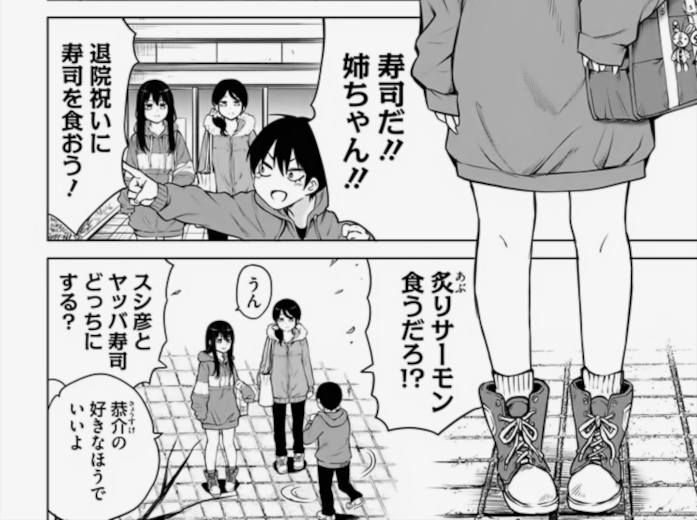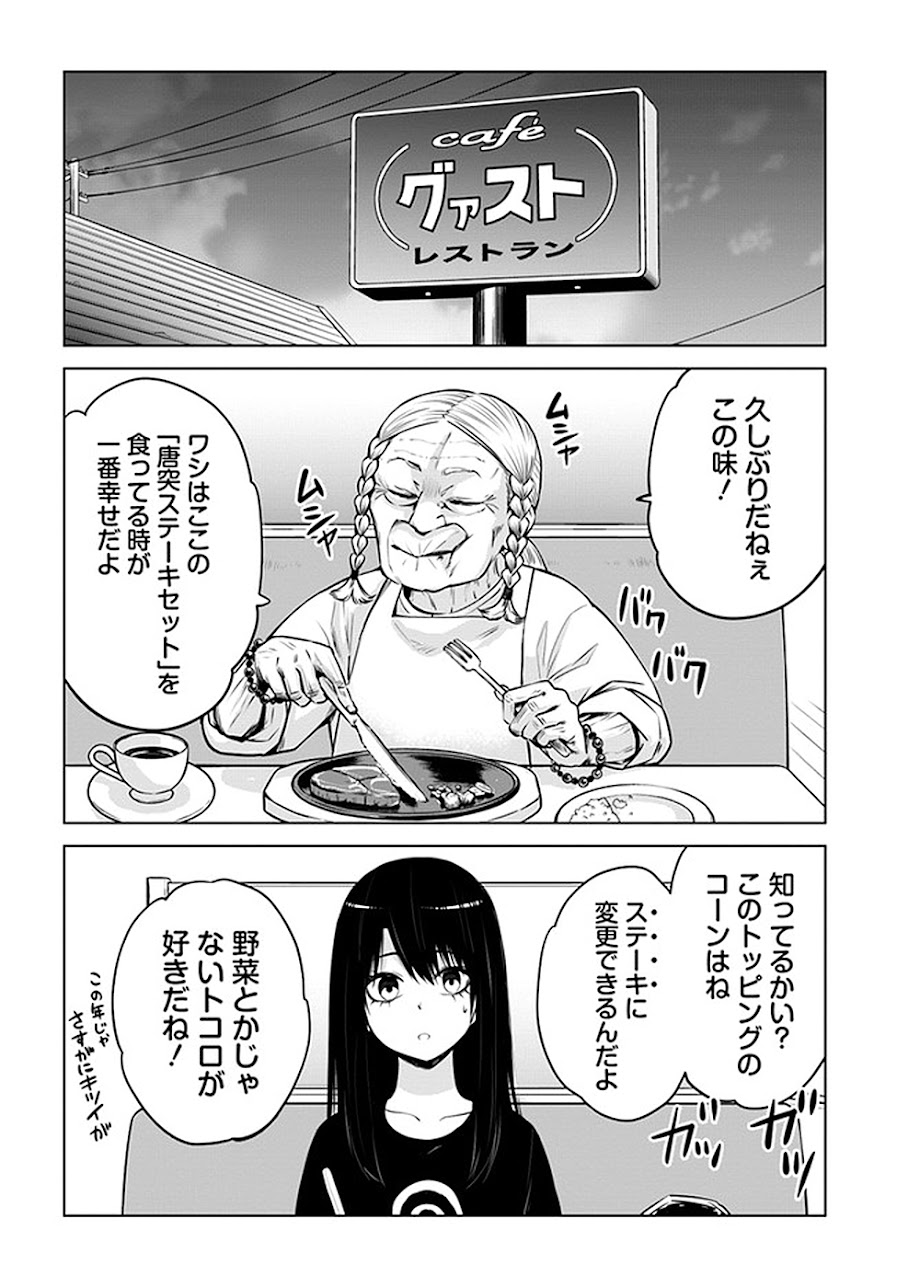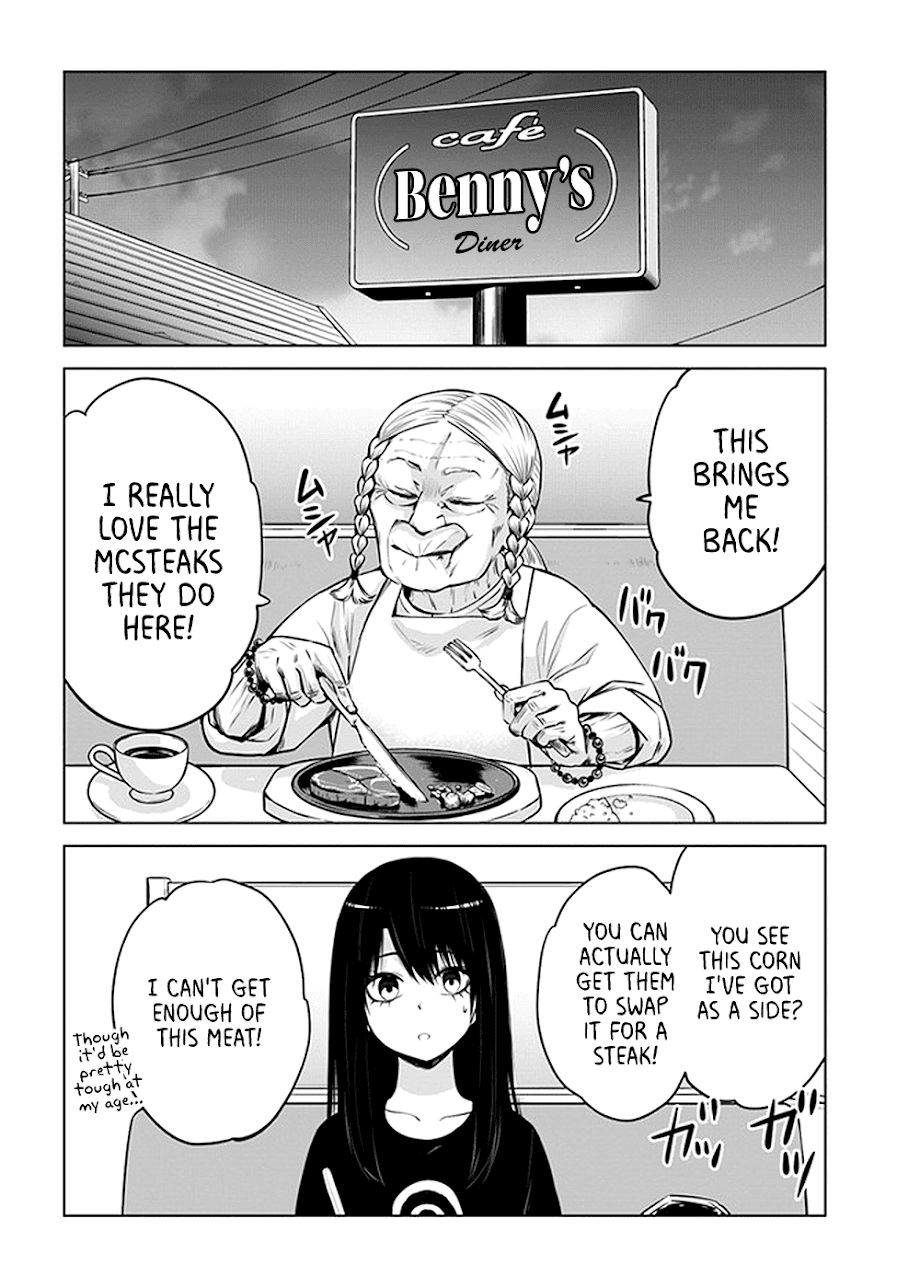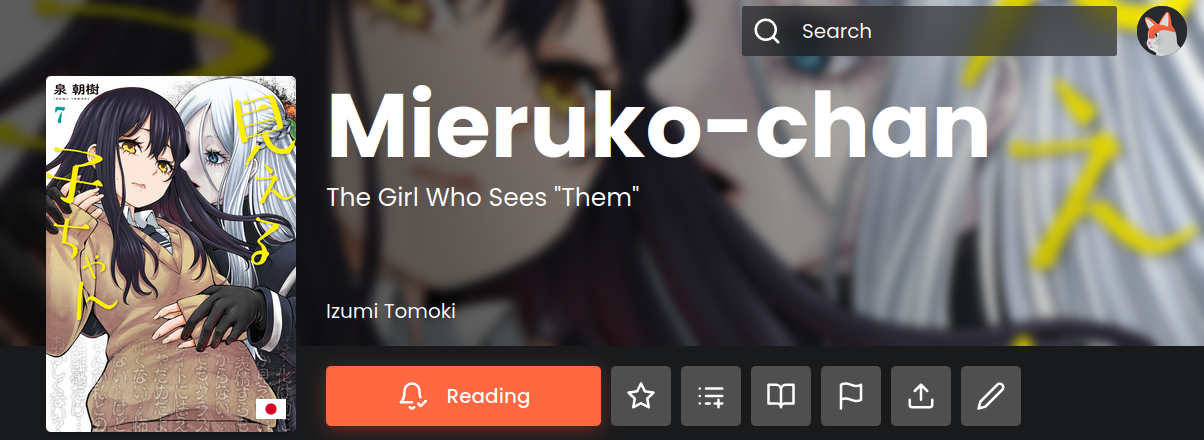If you squint hard enough, don’t you think sushi kinda looks like a burrito?


It’s been a while since I’ve written about translating, but what better time than now since I’ve gotten enough people riled up and we have a perfect example to explore?
Why did we write tacos instead of sushi?

This is the room temperature IQ take.
In the year of Tiktok and Twitter, you’d be hard-pressed to find someone that hasn’t at least heard of sushi in passing. But how many people in your average, English-speaking audience would know that Sushihiko and Yabba Sushi aren’t real restaurants, and they’re actually parodies?

This is basically what it boils down to, though admittedly I am very surprised some people on /a/ of all places caught on.
Anyway that was the short answer, so if you’re satisfied with that then thanks for reading! Though I suspect most won’t fall into this category, so let’s dive a little deeper.
The specific dish doesn’t actually matter
Forget about the words for a moment and take a step back; think about the whole scene. Here, Kyousuke wants to celebrate Miko’s discharge by going out to eat. There isn’t really any reason it has to be sushi. They could’ve gone out for Japanese barbecue, or dumplings… or tacos.
The important point to convey here is that they’re eating out. Sushi isn’t something you’d normally make at home. It’s typically a bit more of an expensive cuisine—not quite fine dining (though it can be), but not really an average weeknight meal either (though it can be). You’d normally save it for special occasions, like someone’s birthday, or discharge from hospital. However, this perception of “the kind of food that sushi is” doesn’t necessarily carry across to an English-speaking audience.
So now we’re faced with a question:
What kind of food do people usually have as takeout, that also has prominent chain restaurants and menu items that many people would recognise if we parodied?
You can see where this is taking us.

One unfortunate consequence of tacos however, is that Mexican food isn’t really considered mid-high class in the same way that sushi is. In fact, if anything it’s the opposite. We thought on this one for quite a while, but there wasn’t really a good Western equivalent that captured this as well.
The English-speaking world isn’t nearly as homogeneous as the Japanese-speaking one, so there isn’t a single dish that carries the same connotations as sushi does in Japan. The celebratory food of choice often depends on the country, the culture, even the household.
In the end, we figured that it wouldn’t make sense in context for Kyousuke to invite his mother and sister out for lobster or steak, so tacos ended up being the best compromise. It doesn’t check all of the boxes, but it hits most of them, and it definitely gets the point across better than sushi does.
Aside: Ramen Burgers
In the Ace Attorney series, Mayoi is a big fan of ramen. If you’ve played the games, you might recall her suggesting going out to eat after most of the verdicts are handed down. But in the official English release of the game, they decided that Maya would instead be a fan of hamburgers.
This led to a lot of jelly donut-esque criticism, but the more I think about it, the more I find myself agreeing with this translation decision. I also think it’s hilarious that they totally own the joke now.
We're celebrating the launch of Phoenix Wright: Ace Attorney Trilogy with a delicious hamburger! pic.twitter.com/VcIj5VVpSL
— Ace Attorney (@aceattorneygame) April 9, 2019
This conception may not be too widespread in the west, but ramen is not really a dish that girls would be eating often. It’s typically quite heavy, fatty, and full of garlic, and ramen joints are often dirty and smelly. It’s not like girls won’t eat it from time to time, but usually they’ll want to appear more refined and would typically go for soba or udon instead, if they’re looking for a noodle dish.
That’s the joke.
Despite this reputation, Mayoi is an unabashed ramen fan. However, this perception of ramen isn’t really widespread in the English-speaking world. In most countries outside of Japan, ramen is actually more of a special dish that you’d go out to eat specifically, so keeping it as ramen in English doesn’t really work.
The following is left as an exercise for the reader:
What’s a cheap, oily, and unhealthy food that you wouldn’t find girls eating too often?

Honestly this worked really well in the games where they never showed the food, so they could just change the dialogue and call it a day. Unfortunately this led to some awkwardness with the anime, but I think it’s great that the official translation just went with the joke anyway as a nod to the fans that got the reference.
A translation should work standalone
Anyway, back on topic. This has basically been the guiding principle—the north star, if you will—that we’ve been working under this entire time. Even longer, if you happen to know us from before Mieruko-chan.
A translated work should be able to be consumed as if it were produced in the target language. It shouldn’t require additional cultural or linguistic knowledge to understand, and it definitely shouldn’t require footnotes to be comprehensible. I say this all the time, but translating is more of a creative practice than people give it credit for. It’s about conveying meaning, not just swapping words.
Obviously, this rule might break down if the work is heavily engrained in the culture of the source material and explores unique concepts of that language and its people. It does hold up pretty well for a cartoon book about spoops with yuri undertones, though.
You might not agree with this choice, but at the end of the day, this is the goal we’re trying to achieve. We’re not trying to create a Japanified fanfic to cater to N4 weeaboos who want to check their homework with us, so we’ll take liberties where we think they are sensible and make for a better reading experience for our target audience. We’ve actually been doing this the entire time, so I’m a bit surprised that it’s only become such a hot topic recently.


In this instance, the author wills “Guasto” into existence, a play on the Japanese diner “Gusto”. Since “Guasto” is a nonsensical string to people who have never seen a Gusto, we figured “Benny’s” would be a good equivalent that would be more meaningful to viewers. I think this is a pretty inoffensive choice.
Then in the next panel, Mitsue orders an “Abrupt Steak Set”, referring to a Japanese steak chain. The joke is that you would expect an “Abrupt Steak Set” to be a menu item at “Abrupt Steak”, not at a Guasto—hence, McSteak at a Denny’s. I would’ve thought that this would’ve been more contentious, but from memory I don’t think anyone ever brought this up.
Maybe there’s a line where McSteaks are okay but tacos aren’t, and the position of that line is just different for everyone. Or maybe nobody understood the steak joke last time. You know, I’ve always wondered why all the translation issues that weebs raise are always entry-level Japanese and tourist-tier culture references. Probably just a coincidence. I’m sure there aren’t any difficult Japanese concepts that might be tricky to translate.
If I’m wrong though, I’m not sure why these people are reading our scans. If you’re reading a translation, then you’re never going to get the true source experience. You’re just going to get the translator’s interpretation. Contingent on actually speaking the language, I’ll always consume my media in the source language if I care about getting the “authentic” experience, and I’d encourage others to also consider this if it’s something important to you.
FAQ
Since we’re here, I may as well respond to some other common questions I’ve seen floating around these past few chapters.
Why Target instead of Donki?
Same deal. As far as most English speakers are concerned, Don Quixote is a book, not a variety store. I think I actually proposed Walmart at first, but the editor caught me and suggested we go for a store that was more likely to carry clothing.
But it was Donki before?

Why didn’t you capture the title drop?
I’m actually very surprised this came up as often as it did. We didn’t even spare a second thought here, we just went with the English title we’ve been using since chapter one.


I guess people who only read via /a/ dumps or whatever might not have seen the title, because I don’t think it’s ever actually come up in the manga.
Are you just memeing?
A little bit. I found it pretty hilarious how many people got upset at the Target thing, and maybe there was a small part of me that wanted to one-up myself. I also lost my shit when I came up with Taco Gong, and figured everyone else also needed to experience this.
But also for the record, I had to spend a lot of time convincing the editor to keep tacos. There’s a reason why we publish 2-3 days after the official release, even though the first draft of the translation is usually done within a few hours.
I feel betrayed. What else have you been hiding?
Probably a lot of things. Hana has been talking about sorbet a lot these past few chapters, but in the source it was charcoal-grilled chicken skewers. This was less of a cultural thing and more of just a logistics decision. I think we needed a food that shared the same prefix as “sorry”, and there was no way to keep skewers in there so we just went with a different food.
This actually came back to bite us a bit because we didn’t expect it to be a recurring joke. In this chapter, Hana suggests ice cream as an alternative to donuts. Although she’s never explicitly mentioned it before, it’s not really out-of-place for her given her character. It definitely would’ve worked better if we could’ve kept skewers instead, but we do end up taking gambles like this from time to time.
Either way, if you haven’t noticed it then it’s probably not hurting you. As much as I like to meme, I have an editor who is pretty hell-bent on keeping me from affecting the integrity of the story, so rest easy and enjoy the lack of plot development.